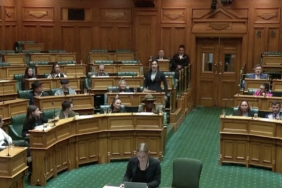İçindekiler
Kaynak: www.aljazeera.com
A fresh political storm has engulfed Israeli Prime Minister Benjamin Netanyahu following the arrest of a number of people in connection with an alleged leak of classified documents from his office.
The documents in question are alleged to be Hamas military strategy documents, found by Israeli military intelligence in Gaza and subsequently manipulated by suspects within, or close to, the prime minister’s office and defence establishment. The documents are then said to have been leaked to the German newspaper, Bild, and the UK’s Jewish Chronicle, just as a potential ceasefire deal for Gaza, which ultimately failed, was being hammered out in September this year.
It is unclear how changes to these documents might have been made, however they are believed to have made it appear that Hamas intended to smuggle the Israeli captives held in Gaza to Egypt and then to either Iran or Yemen.
Among the five arrested on suspicion of leaking and manipulating the intelligence is the prime minister’s spokesperson, Eli Feldstein.
Announcing the arrests on Friday, an Israeli court in Rishon LeTsiyon said a joint investigation by the army, police and Israel’s internal security services, the Shin Bet, had led them to suspect a “breach of national security caused by the unlawful provision of classified information”, which had also “harmed the achievement of Israel’s war aims”.
The leak, judge Menachem Mizrahi said – lifting parts of the previous gag order that had limited reporting – posed a risk to “sensitive information and intelligence sources”, and harmed efforts to achieve “the goals of the war in the Gaza Strip”.
Netanyahu has denied any wrongdoing by members of his office and, according to a statement issued on Saturday, claims he was only made aware of the leaked document via the media.
How big a deal is this?
“This is big,” Mitchell Barak, an Israeli pollster and former political aide to several senior Israeli political figures, including Netanyahu, told Al Jazeera.
“This is potentially worse than Watergate, which is ironically the hotel Netanyahu stayed in on his last visit to Washington,” he added, referencing the residence that gave its name to the scandal of the early 1970s which brought down US President Richard Nixon.
“We don’t know where this will end up. We don’t know how (Eli Feldstein) got so close to the centre of power having failed the appropriate security clearances.”
Barak continued: “However, we do know that this whole affair has endangered our soldiers, the hostages (in Gaza) and whatever intelligence sources our military has there and that’s a big deal.”
What is the motive behind this leak?
Many observers, including Netanyahu’s critics within Israel, have accused the prime minister of deliberately prolonging the war for his ends.
In September, echoing the sentiment of fellow opposition leader Benny Gantz expressed a month earlier, Yair Lapid termed the carnage in Gaza a “forever war”, destined to continue for as long as Netanyahu and his government remained in power.
The families of the captives trapped in Gaza have routinely accused the prime minister of dragging out the war, blasting an air raid siren outside his house last month and announcing a series of rallies to be staged this Saturday calling for a final ceasefire deal that will see family members returned home.

Even the leader of Israel’s staunchest ally, US President Joe Biden, voiced his frustration over Netanyahu’s avoidance of ceasefire terms, telling Time magazine in June that there was “every reason” to suppose Netanyahu was dragging the war out for his political ends.
Netanyahu has been charged with fraud and breach of trust in two cases, and bribery, fraud and breach of trust in a third. Lawyers representing the prime minister have repeatedly appealed for court hearings to be delayed out of consideration for Netanyahu’s role as a wartime leader.
However, to remain a wartime leader, Netanyahu must also retain the backing of his coalition cabinet, where hardliners such as National Security Minister Itamar Ben-Gvir and Finance Minister Bezalel Smotrich will be satisfied with nothing less than absolute victory in Gaza – meaning they would not agree to a ceasefire – and potentially the expulsion of its population.
Following a series of provocative statements on Gaza, the UK is said to be considering imposing sanctions upon Smotrich after he suggested starving the population of Gaza may be justified, while Ben-Gvir, also under consideration for sanctions for terming violent West Bank settlers “heroes”, has also spoken of resettling Gaza, following the population’s “voluntary migration”.
In October, after the killing of Hamas leader Yahya Sinwar, Smotrich and Ben-Gvir, whose support Netanyahu needs to maintain his fractious coalition cabinet, called for an increase in military pressure on the enclave, where Israel has already killed more than 43,000 people.
“Now the IDF (Israeli army) must make sure that there is no resident of Gaza who does not know that Sinwar is dead. It must increase intense military pressure in the Strip, and at the same time offer safe passage and financial reward to those who return our hostages to and agree to lay down their arms and leave the Strip,” Smotrich posted on X, according to a report in The Times of Israel.
Ben-Gvir was equally forthright, calling for Israel to “continue with all our strength until absolute victory”.

Was a Gaza ceasefire deal close in September?
Observers believed that it was.
Early in September, Hamas confirmed they were ready to commit to US proposals in June for a halt in the fighting without “new conditions”.
The US proposal, which laid out a three-phase winding down of the war, leading to a permanent ceasefire and exchange of captives, had already been rejected out of hand by Smotrich and Ben-Gvir just days after it had been issued. Both ministers threatened to walk away from the cabinet and bring down the government if the Biden deal was accepted.
In late August, Netanyahu, supported by much of his cabinet, introduced retaining control of the Philadelphi Corridor (the strip of land between Gaza and Egypt, not mentioned in the US proposal) as an essential precondition of any peace deal.
Justifying this condition, Netanyahu told two news conferences on September 4 in Hebrew and English that Hamas could “easily smuggle hostages out … to the Sinai desert” and, from there, to “Iran or … Yemen”. After that, he added, “they’re gone forever.”
The following day, the UK’s oldest Jewish newspaper, The Jewish Chronicle, ran an “exclusive” story which, according to analysts who spoke to media outlet +972, appeared to be based entirely on the manipulated documents. These appeared to confirm the supposed Hamas plans to smuggle both the captives and much of its leadership out of Gaza in exactly the way suggested by the Israeli prime minister a day earlier.
Hamas’s plan, The Jewish Chronicle reported in an article which has since been removed from its website, “was reportedly revealed during the interrogation of a captured senior Hamas official, as well as by information obtained from documents seized on Thursday, August 29, the day six bodies of the murdered hostages were retrieved.”
What does this mean for Gaza?
By September 11, around the date a ceasefire might have been possible, Israel had killed 41,020 people in its war on Gaza. That now stands at 43,341.
Conditions in northern Gaza, currently under an Israeli siege that started roughly one month after the altered documents were published in the European papers in September, have become so severe that UN chiefs termed them “apocalyptic”.
“People have died as a consequence of this,” Mairav Zonszein, senior Israel analyst with the NGO, the International Crisis Group, told Al Jazeera. “In addition to the thousands of Palestinians who have been killed are the soldiers and the hostages who have died as a result of the failure to reach a ceasefire agreement.”
Representatives of the families of the remaining Gaza captives told reporters that the news of the altered Hamas documents represented “a moral low that has no depth. This is a fatal injury to the remnants of trust between the government and its citizens.”
Will this scandal affect Netanyahu in any way?
Probably not.
Before the current court case there have been accusations of corruption and illegal behaviour involving the prime minister and his family.
In 2017, his personal lawyer and cousin, David Shimron, was accused of trying to bribe German officials into parting with submarines and other naval craft.
In 2018, his wife, Sara, was convicted of misusing public funds, while his son, Yair Netanyahu has been on the losing end of several defamation and libel lawsuits. These have ranged from his untrue accusations in 2000 that a woman, Dana Cassidy, was having an affair with his father’s chief political rival Benny Gantz, to being found to have libelled MK Stav Shaffir in 2022 in a series of social media posts after she had criticised his father for apparently breaking the country’s COVID quarantine laws.
Despite this, Netanyahu is Israel’s longest-serving prime minister, by some margin.
Moreover, while this current crisis may appear hugely damaging, there is so far no evidence of a direct link tying Netanyahu to the manipulated documents.
However, “the issue of the hostages is incredibly sensitive for people,” former Israeli ambassador and Netanyahu critic, Alon Pinkas, told Al Jazeera. “If actual proof emerges that he lied and deceived at the hostages’ expense, it’s going to be bad for him,” he said, before cautioning that both Israel and Netanyahu had been here before.
“He’s got this office of subpar sycophants that will probably take the fall for him,” he said of those, such as Eli Feldstein, who have already been arrested, “and an opposition that, like penguins in the zoo, come out every now and then, as they did over the weekend” – when opposition leaders Yair Lapid and Benny Gantz held a joint news conference – “sneeze, then return to their cave”.





Yorumlar kapalı.